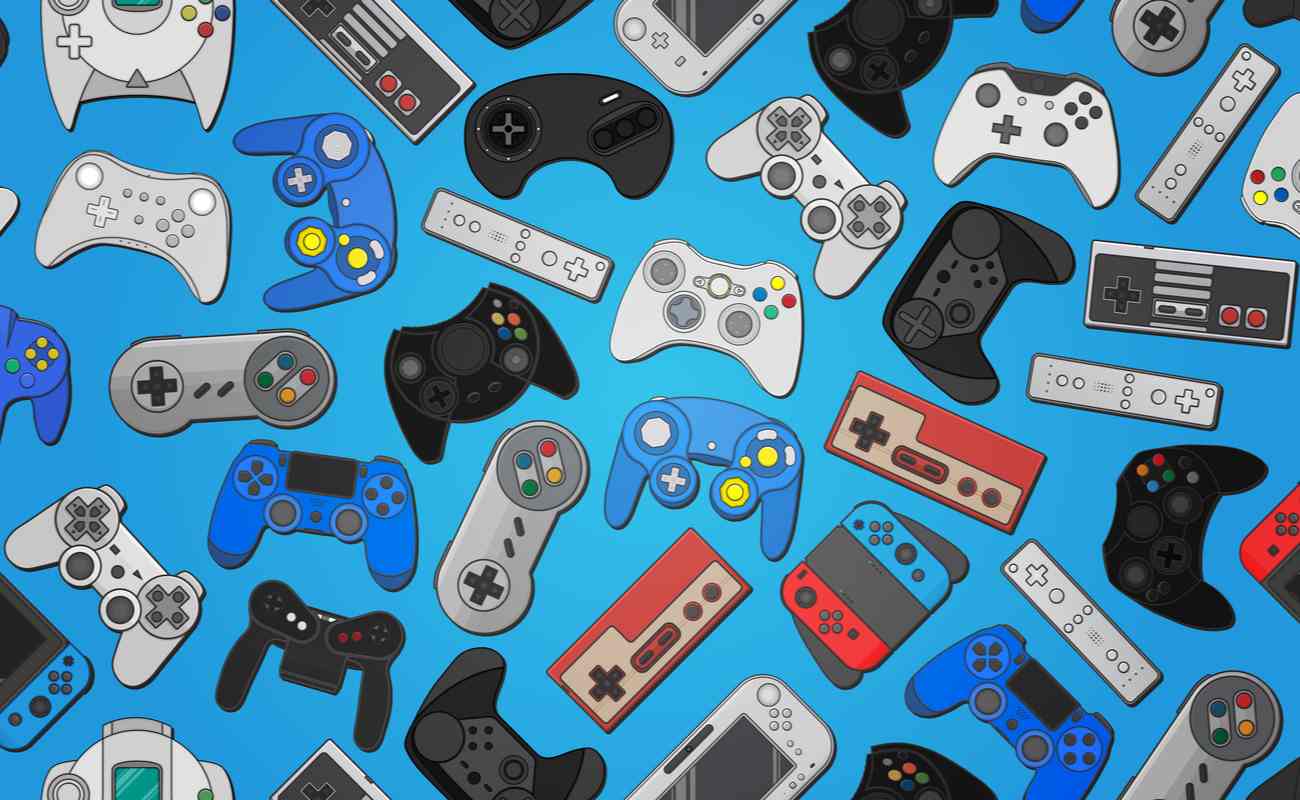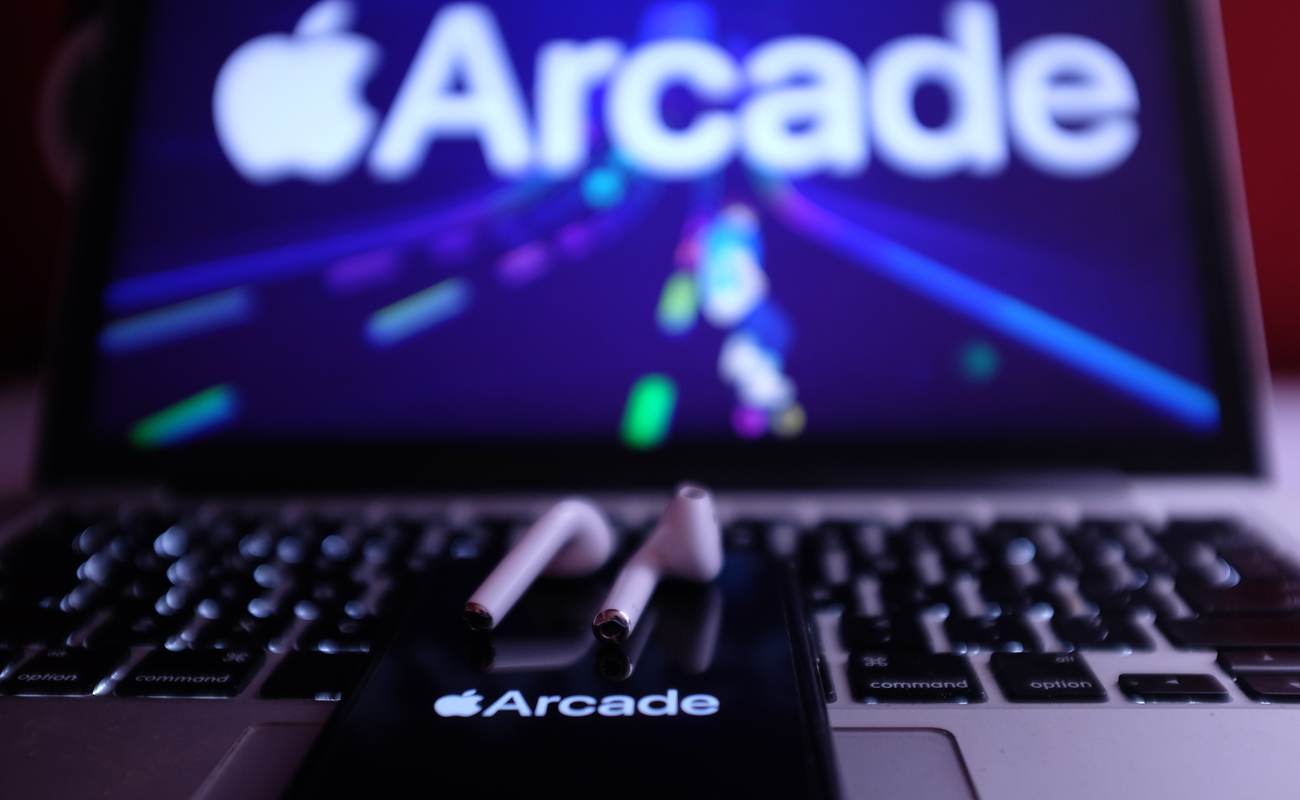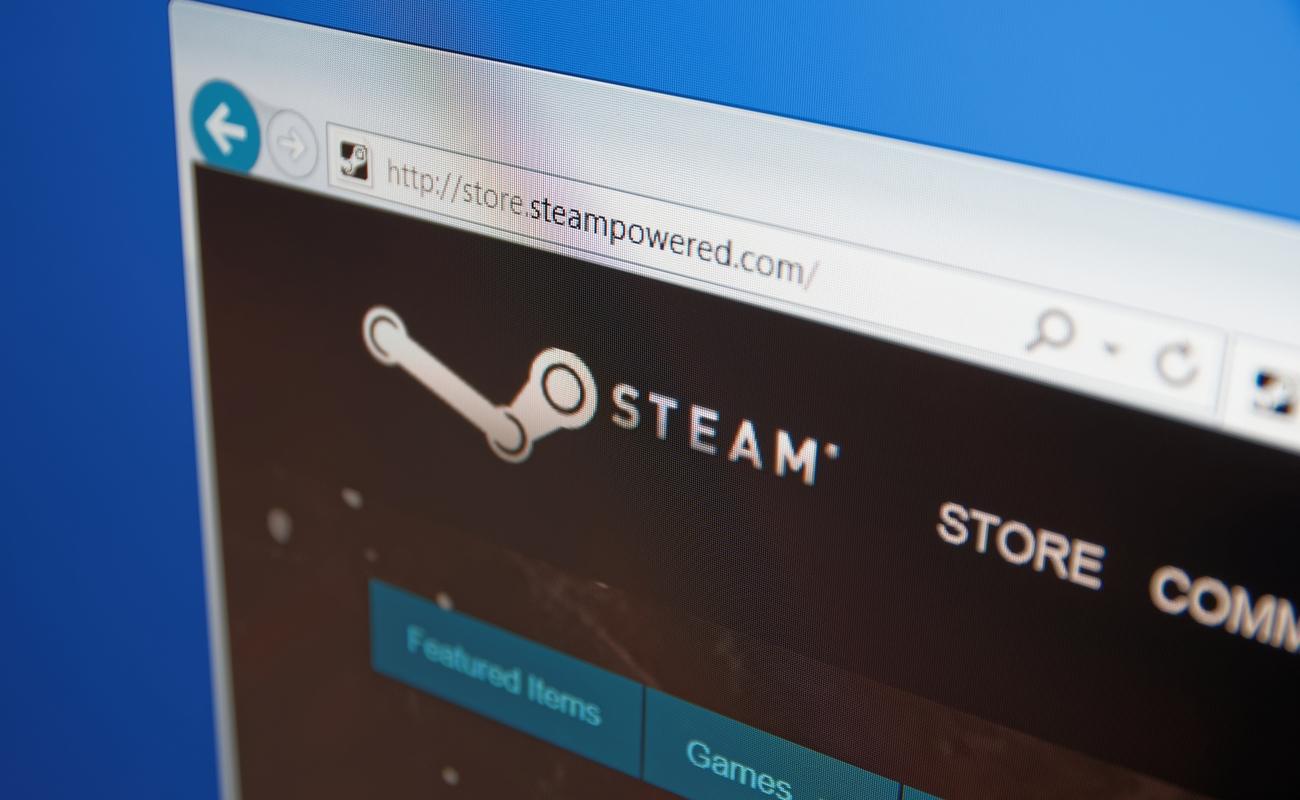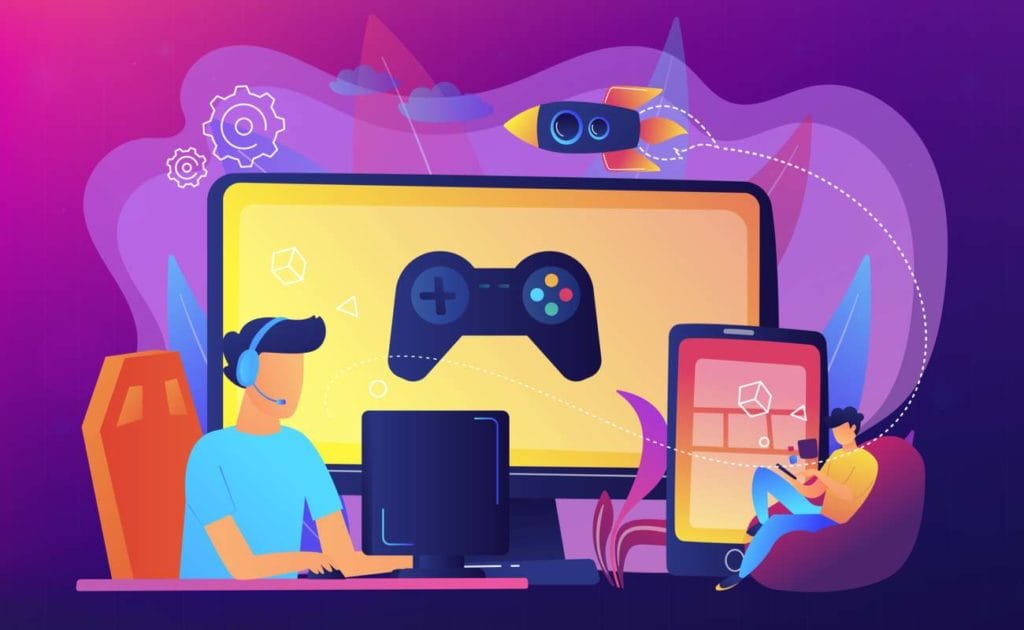
Community is at the center of modern gaming. Limiting games to one console or device might be beneficial to console sales figures, but it limits how players can interact with each other. Thankfully, many publishers and developers are beginning to embrace cross-platform games.
Mobile gaming is becoming a fast-growing subset of the gaming industry and in the future, we might see more and more games available on mobile devices as the technology and capability of these devices improve. Even casino games like live dealer online poker are available on desktops and mobile devices.
But let’s look beyond playing against friends with different devices. What if you could join a poker table on your desktop and then continue the same game on your smartphone later? What does the future hold for all cross-platform games and how will this new technology change the way we entertain ourselves?
The Evolution and Growth of the Online Gaming Market

The online gaming industry is blowing up! The global market was valued at $56 billion in 2021. By 2030, it’s expected to achieve a market size of $132 billion, thanks to the amount of money being invested in new technology and innovation.
If we take a look at online casino games specifically, statistics show that the online gambling industry reached a value of $72.3 billion in 2021 and is expected to reach $131.4 billion by 2027.
Among some of the most popular games are online slots and casino table games, including roulette and blackjack. With more investment in online gambling and constantly improving technology, cross-platform gaming is going to be an integral part of the future of the mobile gambling industry. But how has the industry evolved to be in a prime position to welcome this new trend?
The Rise of Gaming Communities
Since the first video games were created, communities of players have formed around particular games, whether it was groups of college students breaking into labs to play Spacewar! in the 1960s or Mortal Kombat players gathering at arcades in the early 1990s. But as great as these communities were at the time, they were just a drop in the ocean compared to what was coming.
After the introduction of the internet in 1991, more tools were created that allowed people to connect. From early bulletin board systems to forums, private chat applications and, eventually, the social media giants we have today, people began reaching out to each other around the world in a way that had never been seen or was possible before.
Naturally, gamers began building communities around their favorite games. The internet has taken grassroots gaming communities that already existed and made them into thriving global networks of players.
Live online streaming services such as Twitch have also played a major role in bringing fans together, with popular streamers building their own communities of players. Since Amazon acquired Twitch in 2014, the company has grown immensely, surpassing ESPN’s audience size in 2017. It currently has 140 million unique monthly visitors, with 9.2 million active streamers on the platform.
Gamers Face Off Online

The internet wasn’t just critical in developing communities outside of games; it also connected players within the actual games themselves. PC gamers were the first to experience multiplayer online gaming. However, the technological boundaries of the time limited games to turn-based affairs like battleships, cards, chess or golf. This all changed when Doom was launched in 1993, becoming the first game ever to feature real-time battles between players online.
For many years, though, if you wanted to play, you had to do it on a computer. Even though console gamers may have initially felt left out as they were stuck gaming with a few of their friends on their couches, developers spent years working hard to introduce a solution to make online gaming more accessible. Sega was the first to lead the way with a console-based solution.
Sega originally tried to bring online gaming to fans with its Meganet service in the 1990s and later with add-ons for the Sega Saturn and decided to give it another go with the Sega Dreamcast in 1998. It was the first console to include multiplayer from the ground up. The console came with a 56k modem so that players could go online.
Unfortunately, the console didn’t grab gamers in the way Sega had hoped and it was considered a commercial failure, even if it was undoubtedly ahead of its time. But the company had laid the groundwork for another company: Microsoft. The first-generation Xbox console introduced the Xbox Live service, which redefined console gaming forever. Since then, online gaming has become a staple part of the console-gaming experience, but there was another challenge that lay on the horizon.
Breaking Down Online Barriers
As popular as online gaming had become across multiple platforms, it was a struggle to get console developers to agree to enable cross-platform multiplayer functionality. This reluctance might have been caused by technical and proprietary considerations, even though the first game that supported cross-platform play between PCs and consoles was released in 2002.
There was another big push from Microsoft a few years later when it tried to promote cross-platform play with a game called Shadowrun in 2007. But up until 2015, cross-platform games were still far from becoming the standard.
However, things changed in 2016 when Microsoft enabled cross-play for players of the vehicular soccer video game Rocket League. The game allowed players to challenge their PC gaming counterparts.
Microsoft didn’t stop there: it also invited Nintendo to do the same, with an announcement coming a few months later that the Nintendo Switch version of Rocket League would support cross-platform play. Sony only joined the movement in 2019 after getting called out by gamers who enjoyed the cross-platform play of Rocket League and Fortnite. PlayStation finally embraced cross-platform for all games moving forward.
Since then, we’ve seen mega-titles, including Call of Duty and Need for Speed as well as other games such as Dauntless, Sea of Thieves, War Thunder and many others, all jump on the cross-platform bandwagon.
Other current titles in this genre that are proving to be very popular include Minecraft, Among Us, Paladins and Hex. This excludes the host of new games arriving this year.
A New Challenger Enters the Arena: Mobile

We’ve seen how new-generation consoles will impact the market, but what about mobile devices? Traditionally, there were two main online gaming platforms: consoles and PCs.
More recently, a third platform has seriously started to muscle in on these two titans, namely mobile gaming devices. And we’re not talking about handheld consoles like the Gameboy or the DS. We mean gaming on the powerful device you likely have in your hand right now, your smartphone.
Mobile Phones Join the Market
With the rise of advanced smartphones with powerful processors and graphics, the number of game genres available to play on your phone has exploded. Players can now enjoy role-playing titles, including Final Fantasy and Neverwinter Nights, first-person shooters such as Call of Duty, Fortnite and PUBG, strategy games like Clash of Clans and even unique augmented reality games such as Pokémon GO!
Single-player or multiplayer, the smartphone gaming industry has evolved to offer experiences that appeal to people who would never dream of owning a console, as well as those who play on console and PC. What’s more, you can play on the go.
According to Statista, mobile gaming revenues reached $152.50 billion in 2022. Even though mobile gaming’s roots may be in more humble gaming experiences, there’s no doubt that it’s here to stay and will soon join its bigger brethren in the cross-play arena.
Mobile Devices and Online Casinos – A Match Made in Heaven

Playing casino games online hasn’t always been synonymous with mobile devices. The first popular online casinos were limited to web- or download-based platforms primarily accessible through a desktop or laptop PC.
This was especially true for web-based casinos since they used a technology called Flash, which worked on computers but wasn’t officially supported by the first iPhone or any smartphones that came out soon after its release.
Even though the early smartphones didn’t fully support Flash, developers saw the potential these new devices offered and got to work adapting them to a new online programming language that could meet all their needs: HTML5.
Goodbye Flash, Hello HTML5
When HTML5 was released in 2008, it was designed for the future, with a focus on mobile and traditional computing devices. If you coded something in HTML5, it was far easier to get it to work on a wide range of devices. This was great for developers because they could save on costs for making different websites, but it also meant that a single site could work on any device with a browser that supported HTML5.
For online casinos, this meant that people playing on their phones could seamlessly switch over to their computers and play there, and vice versa. But what if you played through an app?
Did this mean you couldn’t play with people who used a browser-based version? Not at all. One could argue that the online casino industry was the first gaming industry to understand the importance of cross-platform gaming and committed millions of dollars to make sure it worked.
Cross-Platform Gaming in Online Casinos
Long before Rocket League and Fortnite allowed gamers to play together on PCs, PlayStations, Switches or Xboxes, the casino industry made sure that players could play real casino games with or against other players on their PCs, smartphones, tablets and other devices.
Even console players could join in the fun as long as their browser supported HTML5. These days, no matter where you are or what device you have, you can hop onto your favorite site and play casino games against other players across all devices.
However, there’s still one feature missing from online casinos. With a cross-platform online backup, you have the freedom to not only enjoy games on all platforms but to pause and continue your games on a different device for your convenience.
In the future, we’d love to see optimized casino games that you can start playing on your desktop and switch devices to your cell phone or tablet to continue without having to restart. This means games can move with you and adapt to your lifestyle.
Thankfully, convenience and innovation are central to the casino gaming industry. We believe players will enjoy these features and many more in the not-so-distant future.
Where to From Here?
Cross-platform gaming has already had a major impact on the gaming industry and is expected to continue to do so. Most experts say it will end the console wars and allow for increased multiplayer experiences across all platforms.
Players will need to be online to take advantage of cross-platform gaming, which requires a reliable internet connection and may hamper growth in areas where connectivity is limited.
However, as the digital divide closes, cross-platform gaming will help to consolidate the metaverse and create new gaming communities worldwide.
Finally, while PC players may have an advantage when cross-playing or cross-platform gaming, the benefits of cross-platform gaming are expected to be positive and are highly anticipated by the gaming and entertainment sector.
Enjoy the Cross-Platform Experience at Borgata Online

Whether you own an iPhone or an Android, a PC or a tablet, you can play at Borgata Online. All of our casino games are mobile-optimized and regularly updated. Borgata Online fits into your life.
You can play at home or on the go and our catalog has thousands of games, including casino table games like baccarat and roulette and exciting jackpot slots from the top developers in the industry.
If you prefer a live casino experience, be sure to give our live dealer casino games a try, too. Play your favorites your way. Register at Borgata Online!
